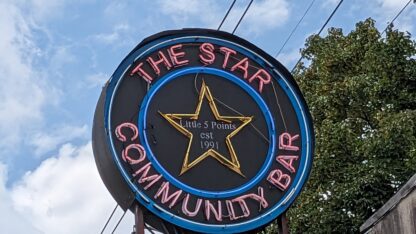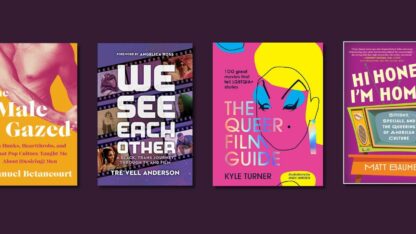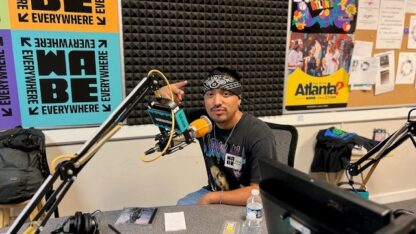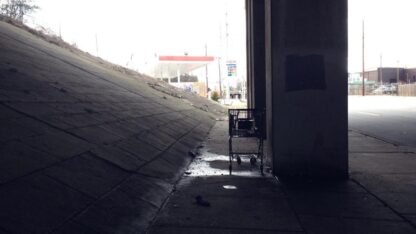Hip-hop has gone through many changes that have shaped into different stages and categories. But with recent movements to respect people’s sexuality and new laws that allow same-sex marriage, will the booming industry try to make a change, too?
What if some guy was gay and wanted to become a hip-hop artist?
Now, a lot of hip-hop artists do identify as gay or lesbian but don’t really show it outside of their own personal space. An awful lot of them don’t sing/rap about their true sexuality either.
They’ll usually sing about the stereotypical topics in rap songs, girls if they’re boys, and boys if they’re girls. Boys rapping about any part of a girl’s body, the way they act, etc. Girls rapping about men and their “manliness.” You know, the usual.
But, there are a select few who do not bring these stereotypes into their music.
For example, Frank Ocean.
In his 2012 song “Forrest Gump,” his lyrics reveal his true sexuality when he sings, “Forrest Gump you run my mind, boy/Running on my mind, boy.”
How the world treats homosexual content in hip-hop has received mixed opinions. Back in the day, if you were a gay artist, you wouldn’t dare say one word about it.
The homophobia back then was stronger, but how strong is it now?
People of the same-sex can happily marry each other. People can walk the streets with Pride clothing and go to public clubs to enjoy themselves.
However, can they sing about it without facing backlash? Can they integrate themselves into genres of music that are closed off to homosexuals?
If you’re popular enough, your songs will most likely blow up in a relatively good way.
In 2013, heterosexual rapper Macklemore had a big hit with the gay ally anthem “Same Love” that went viral around the world.
The cover art for the song features a gay couple, and the lyrics dive into homosexuality that involves a gay wedding. During the 2014 Grammys, Macklemore and Madonna performed “Same Love” as 33 same-sex couples got married during the live telecast.
More recently, viral sensation Lil Nas X, came out on the last day of Pride Month, June 30.
Some fans on social media said that they couldn’t listen to him anymore because that’d be considered gay or they’d turn gay.
Not everyone sees it as a problem and will probably continue to listen to him without any complications (because his songs are really very good). But the world is cruel and to stay safe, most choose to blend in.
In an interview for VOX ATL, Anye Elite, a rapper best known for his contributions to Atlanta’s LGBTQ community, talked about how he felt while rapping or making lyrics to his latest songs.
“Sometimes, I can still get a little embarrassed about some of my lyrics, and it’s not because I’m embarrassed about who I am, but I do think just talking about love and liking people. It can be really hard to sometimes be out in the open about that. I think that’s the reason why I keep going, though, is that there are a lot of people who benefit from seeing or hearing at least from stories, even people who aren’t gay. The earlier people are able to see other examples of how people live, the better the world is for it.”
Lizzo, a fast-growing hip-hop artist who identifies as a gay ally, raps about whatever she wants without hesitation.
Le1f, another gay artist, raps, “I see it in his eyes, he can’t handle that/ Thinking I’m the prize in his Cracker Jacks/ I’m making him melt like candle wax,” on his hit single “Koi.”
Other rappers are more subtle and vague, whereas they may leave you confused when they hint at “something” but they’re not entirely clear about it.
On Tyler, the Creator’s album “Flower Boy,” he basically comes out on the song, “I Ain’t Got Time,” rapping “I’ve been kissing white boys since 2004.” But, because of his comical reputation, people don’t take him seriously.
In 2012, Syd the Kid from the band The Internet publicly displayed her sexual orientation and beliefs in the song “Cocaine.”
She was asked by LA Weekly why she decided to come out in the hit song.
“I decided to do it because I wish I had someone like that [an openly gay female artist] while I was coming up. People write on my Tumblr just thanking me for making the video, saying that I really inspire them, and they want to be like me. I put myself out there because I’m sick of people asking. I’ve been asked it so many times. It’s annoying, it’s like, you can’t answer that yourself? Do I look straight to you?”
Some famous hip-hop artists have accepted the community, sometimes in song and in person.
For example, openly gay rapper Chris Conde shared a story where late rapper Bushwick Bill of the Geto Boys appeared to accept it.
In the 2005 song “Yes Yes Y’all,” Bill rapped: “Don’t like fa**ots/Hate politicians/Can’t stand snitches/Know the feds listen.” Fast forward to 2018, Conde was performing at the same show as Bill at SXSW. After Conde closed his show with a message promoting LGBTQ rights, Bill took the stage and said, “That’s what’s up. That’s what hip-hop is all about — expressing your own individual journey.”
The world is steadily changing and becoming more accepting with the LGBTQ community. Hopefully, the hip-hop industry is not far behind.
This story was published at VOXATL.org, Atlanta’s home for uncensored teen publishing and self-expression. For more about the nonprofit VOX, visit www.voxatl.org.










